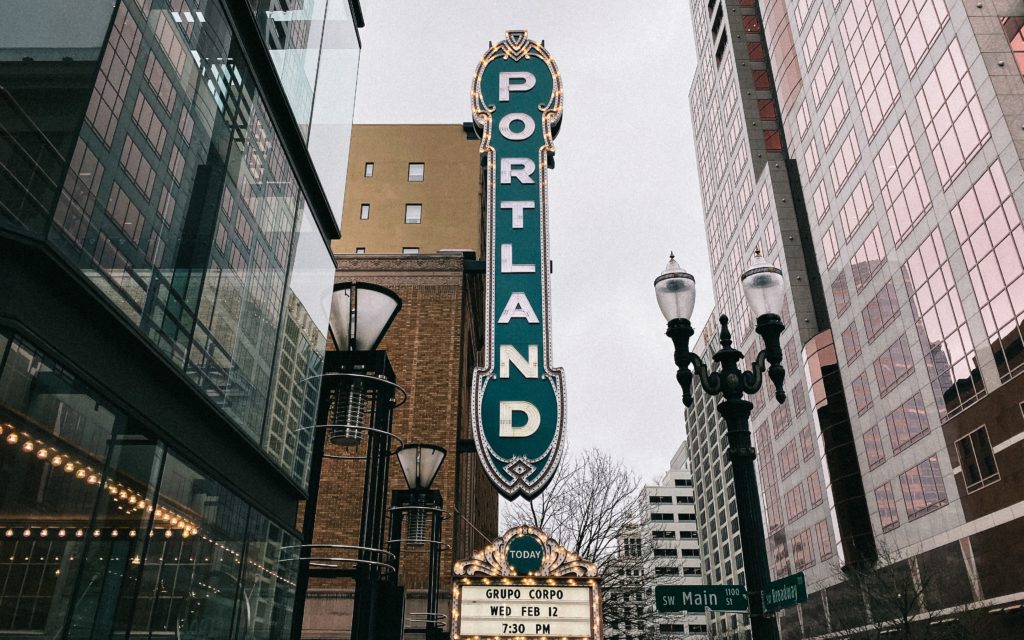“For the most part, Cannabis criminalization occurred throughout the 20th century as a result of xenophobia and racism; white Americans of European descent were frightened by increasing numbers of immigrants from Asia and Latin America, many of whom used cannabis products recreationally and for cultural or spiritual expression.” (Cannabis & Tech Today)
After almost a century of cannabis bans, the social inequity surrounding the drug is undeniable. The ACLU found that Black Americans are more than four times as likely as white Americans to be arrested and imprisoned for cannabis-related offenses, despite cannabis usage rates that are roughly identical.
In many states with legal cannabis industries, BIPOC (Black, Indigenous, People of Color) remain as persecuted for cannabis-related crime as ever — and they aren’t reaping the economic benefits of legalization, either.
Ballot Measure 91 was approved in 2014, legalizing non-medical cultivation and uses of cannabis in Oregon starting July 1, 2015.
Greater Opportunities for Minority Cannabis Entrepreneurs
Oregon’s social equity provisions might be lacking compared to other statewide programs, but some industry analysts believe the relatively low barrier to entry for cannabis entrepreneurs is one way the regulations foster racial diversity.
Oregon’s cannabis regulations are well known in the industry for offering some of the lowest licensing fees, and for several years, not limiting the number of permits.
Those same provisions led to an oversupply of wholesale marijuana flower, a steep drop in prices, and the departure of companies from the fiercely competitive market.
After the market started to correct and wholesale flower prices began rising, the small-business-friendly nature of the regulations also allowed entrepreneurs from more limited socioeconomic means to apply for cannabis business permits.
“When you have that open licensing opportunity, then people have the chance to get in there and compete,” said Jesce Horton, a Portland-based cannabis cultivator and former chair of the Minority Cannabis Business Association.
Horton agrees that Oregon has struggled to adopt a statewide social equity law. He also points out that the market has changed in the past few years. Fewer business licenses are being issued, and the permit approval process has slowed.
Lack of Access to Capital
Even with a low barrier of entry for cannabis entrepreneurs, the lack of access to capital for the socioeconomically disadvantaged remains a significant barrier to success in the industry.
This is where the NuLeaf Project is making an impact. Co-founded and directed by Jeannette Ward Horton, who previously ran communications for Denver-based cannabis software firm Akerna. She’s also married to Jesce Horton.
Her Portland-based project is geared toward helping social equity applicants gain the access to capital necessary to succeed through grants and funding from cannabis tax dollars.
Ward Horton believes that Oregon has one of the best licensing structures for creating equity, but “the problem is capital.” Her organization has helped businesses get funding, including grant money. It also provides coaching and mentoring.
Nuleaf Project’s goal is to increase success outcomes for people of color in cannabis either as business owners or high-earning professionals. So far, Nuleaf Project has awarded 30 economic justice grants and loans totaling over $500,000.
The City of Portland is the first U.S. municipality to invest tax revenue from the legalized cannabis industry into the communities most negatively impacted by cannabis criminalization. NuLeaf Project is funded in part by this historic initiative to rebalance the detrimental economic impacts of the war on drugs.

Portland’s Progress
As Oregon’s largest city, Portland leads the state’s conversations about increasing opportunities for would-be cannabis entrepreneurs who come from socially disadvantaged backgrounds.
In May 2020, the city’s Office of Community and Civic Life hired Dasheeda Dawson to be its new cannabis program supervisor.
According to her LinkedIn profile, “Dasheeda Dawson is The WeedHead™ – a global cannabis advocate, award-winning executive strategist and author of the bestselling workbook, How to Succeed in the Cannabis Industry, 3rd Edition.
In an interview with MJBizDaily soon after she started her new position, Dawson said the conversation about how social equity should be defined has begun. “That’s why I was selected to oversee the Portland program,” she said. “There is a lot of work to be done.”
Dawson said social equity has been defined as a theory for policymaking and city programs as a way to ensure everyone has equitable access to take advantage of what is available to all citizens.
But she noted that certain barriers have “caused inequity across a lot of our society.”
For example, Dawson cited rules that bar people from working for or owning a cannabis company if they’ve previously been arrested for marijuana-related charges. Social equity rules, she added, should help to correct that.
Her goals are to execute on the intent of the social equity push and to track how social equity money is performing in the industry.
Portland’s Cannabis Program
The City of Portland’s Cannabis Program oversees all regulatory, licensing, compliance, community impact, and equity initiatives for the City’s legal cannabis industry, both medical and adult-use. In addition, the Cannabis Program oversees the Social Equity & Educational Development (SEED) Initiatives. Supported by an ongoing $1 million in cannabis tax revenue allocation, SEED Initiatives was launched as the Cannabis Program’s vehicle for the single-source monitoring, measuring and reporting on the city’s cannabis tax revenue, including administering the SEED Grant Fund.
SEED Initiatives is the first program in the United States to integrate equity programming within a cannabis regulatory office.
In November 2016, Portland voters approved Ballot Measure 26-180 to impose a 3% local tax on adult-use cannabis retail sales. Since then, over $14 million in cannabis tax revenue has been allocated across various City of Portland bureaus to support street infrastructure improvements; DUII training; drug rehabilitation; criminal justice; expungement and re-entry services; and small business owners from communities disproportionately impacted by cannabis prohibition.
SEED Grant Fund
In alignment with the Ballot Measure 26-180, the SEED Grant Fund prioritizes BIPOC entrepreneurs and women led/owned small business initiatives and/or projects, programs or services that support economic and educational development of Black and Brown communities, which were most impacted by cannabis prohibition.
The SEED Grant Fund supports nonprofit and for-profit entities of any size, including community-based organizations, individuals, firms, teams or consultants. Newly formed groups or initiatives with fiscal sponsorship from a nonprofit entity are also eligible. Multi-entity collaborations, coalitions and/or consortium efforts are encouraged to apply.
The SEED Grant Fund distributes funding across a range of projects, programs and services within the following designated priority areas:
- Education
- Entrepreneurship and economic development
- Expungement
Cannabis Social Equity May Take Years
Oregon is making great strides in its decriminalization of cannabis use and possession. According to the ACLU’s report “A Tale of Two Cities,” Oregon has among the lowest racial disparities for marijuana-related arrests in the nation—Black people in Oregon are 1.8 more times likely to be arrested for cannabis. But racial disparities for arrests still exist.
Throughout human history, social equity was never something that just happened; it was always something that oppressed groups and their allies had to actively fight for. Even today, historically oppressed groups continue to strive for equal treatment in all aspects, from the wages they earn to their treatment in social spaces. Because the legal cannabis industry is young, it’s just starting to be impacted by social activism.
It may take years — even decades — before we see true social equity within the legal cannabis industry. Fortunately, with tools like social media, activists have more power than ever to bring positive change for BIPOC entrepreneurs working with cannabis.
